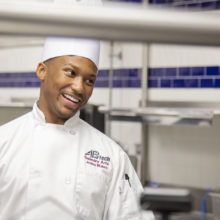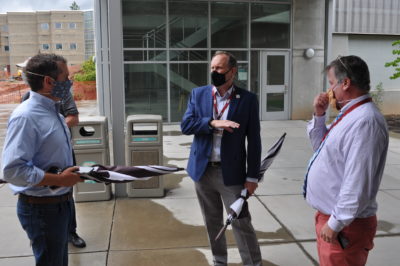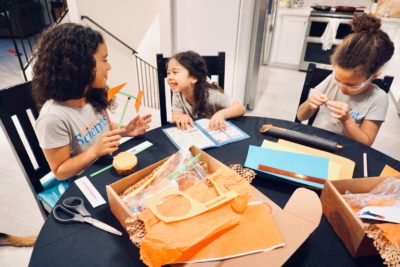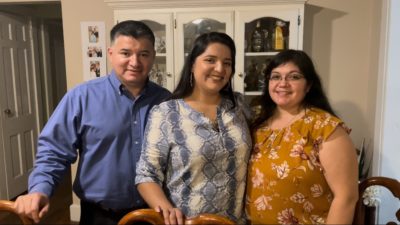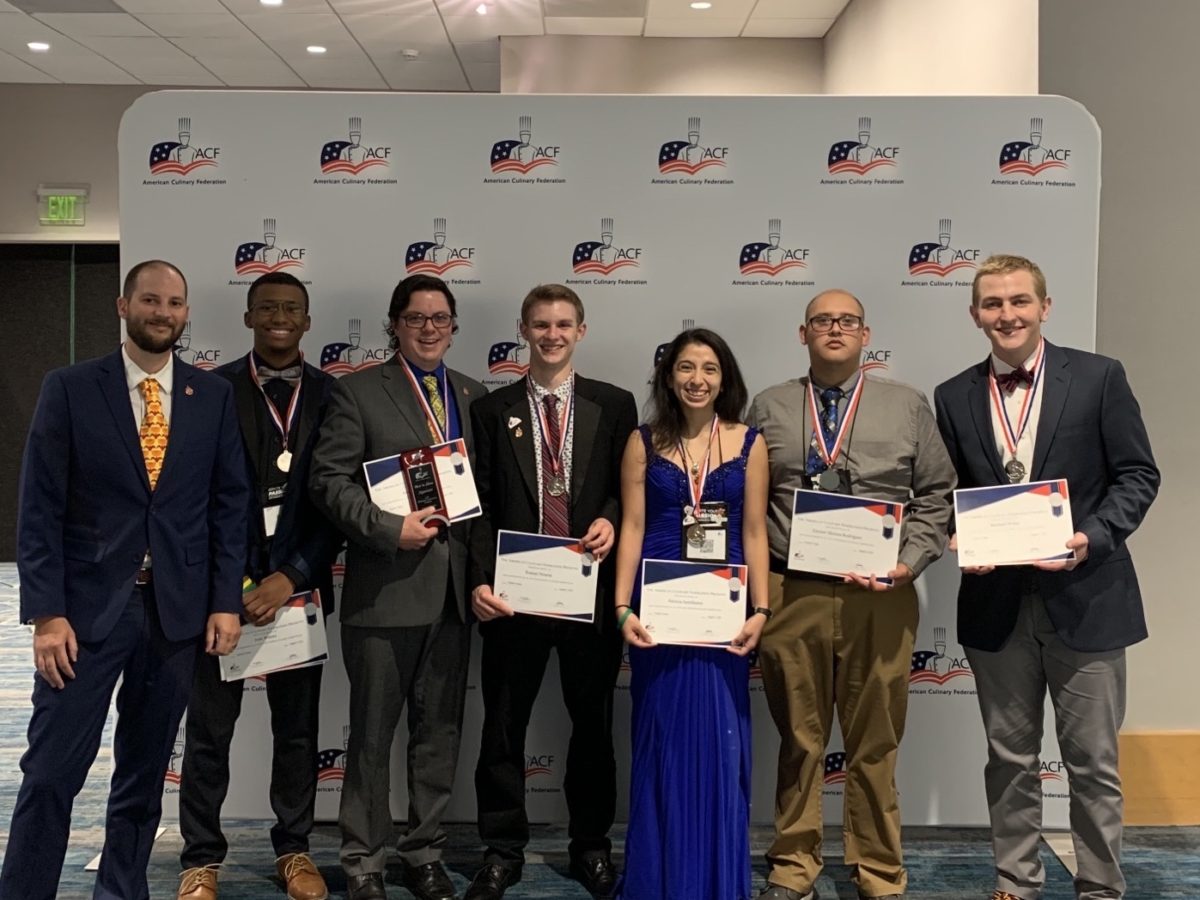

March 2020 was a strange time. We were in our classrooms at Asheville-Buncombe Technical Community College (A-B Tech) throughout the day while hearing about the coronavirus on social media.
Everyone was like, “Oh yeah, there’s a new virus out there that’s affecting people all over the world and it hasn’t gotten here yet.”
We all wondered, “What do we do when it gets here?” Nobody expected a full shutdown.
When it happened, I got a phone call from work and an email from the school saying, “We’re done with work and on-campus learning until further notice because we don’t know anything about this disease.”
At first, I was happy, because I thought working and learning from home would be easier. But I soon realized that was a big mistake. That transition from hands-on environments to online ones was rough for me. I don’t do online work well. It is something I’ve tried to do in the past, and it’s just not my style of learning. It hindered me for a little bit. We had structured Zoom calls and resources, but it really came down to learning everything pretty much on your own.
I have severe ADHD and also am starting to go slightly blind. It’s hard for me to read a book and I learn better if someone is beside me showing me how to do it. Even though my brain processes quickly and I take in information well, this is just how I have to learn.
And, honestly, being stuck in an apartment every day for months was stressful. With such a challenging start, I never expected all that the year ahead would hold for me.
Back in my environment
When we got to come back to campus in August for culinary lab classes, it was a breath of fresh air because I was back in my environment. I had debated whether I wanted to keep studying culinary arts if we weren’t in-person, because I didn’t want to just learn from a book. I wanted to actually be able to cook food and learn by experience. When I have to figure out what a recipe means, I have some of the best chefs in the world at my beck and call when I’m on campus. It was also fun seeing everybody for the first time in a long time.
The second year of the culinary program is all about our capstone, so our graduation project started immediately. I chose Central African cuisine with a main focus on Rwanda and the Democratic Republic of the Congo. I took traditional elements and regional ingredients and put a modernist spin on the dishes, inspired by chefs at restaurants like Alinea or 11 Madison Park. My grandmother was from the Congo, so I knew the dishes. I then started asking: How can I elevate them?
Meanwhile, we started the Global Cup (an internal global cuisine competition). We could do whatever we wanted for two courses — whatever cuisine, whatever region. At first, I decided on Italian, because I worked at an Italian restaurant for four years and was sous chef. But I started cooking and realized I should do some of my capstone dishes and start testing them if I wanted to win.
So I chose Africa, and I made a seasonal salad with a blood orange aioli and a pickled watermelon rind. I also made an African-inspired rice dish called los ya bulayi, which is also known as jollof. I also cooked some lamb and okra – I’m a fiend for okra. To my surprise, I won the Global Cup.
Becoming captain, looking ahead
My roommate Michael was already on the culinary competition team. One of the team members had to leave, so Michael encouraged me to try out. I didn’t think I’d make it, but he kept saying, “You won the Global Cup and you don’t think you’ll make the team? For once, trust me.” After a lot more encouragement from Michael and another friend, I approached Chef Bugher and got a tryout. He told me I had to make a salad out of corn, watermelon, and rice wine vinegar. After a lot of nerves and spending the first day doing something I’ve never seen or attempted, I went simple and made a corn plank. I made the team and am now its captain.
In May, I graduated with my degree in culinary arts. I remained on campus this summer to practice for the National American Culinary Federation Competition in August.
I am taking one more class in computer basics this fall. Since I was able to receive Trailblazer Promise funding, I’m also working towards a Therapeutic Culinary Certificate.
Once I finish my studies, I may travel the United States to learn all of the different cuisines. There are a couple of stops where I’d like to learn from some of the best in the world: French Laundry with Thomas Keller, who is a god of modern cooking; Alinea, because of Grant Achatz and what he does with gastro pub; and Smith in Chicago, which is similar to Cúrate here in Asheville.
After I’ve done my travels of the United States and gotten what I can here, I want to go back to Africa, learn what my grandma learned, walk in her footsteps. That’s ingrained in me and something I didn’t get a chance to fully appreciate when I was a kid, because I wasn’t interested in cooking. Now that I have a deeper understanding and deeper connection to it, I want to actually be able to go to Africa.
I’m only 20 years old, but I’m starting to realize I only have one perspective. I need to see the whole picture before I can understand what’s happening. That’s how you grow. And that’s honestly how these Michelin Star chefs are putting out such great food. They understand everything from a deeper level, because they have the perspective of many: the farmer’s perspective, the perspective from when they were cooking in France or England. And that’s something I don’t have yet. I only have the Asheville perspective. Despite our fantastic food scene, it’s only one town.
I was glad for the opportunity to stay after graduation to prepare for the ACF National Finals. Everyone on the team was striving to win and get first place, but we also wanted to go beyond.
We all have such a deep appreciation for A-B Tech and what this community, this college, and this program have done for us all in our development inside and outside of the classroom. We’ve grown as people and we can go to any one of our chefs (instructors) when we need to talk or need help.
That’s what sets a community college apart from a university. That more personal relationship is better than hearing, “Yeah, I know you’re in that class. Who are you again?”
It was a humbling experience being able to compete at the national level, and we are all extremely happy and proud of the efforts we put in as a team. We won silver medal and best in show for our appetizer dish. I think I can speak for just about everyone that we all really want to do more competitions and — taking the foundation of our community college — grow as young culinarians and rising chefs.
